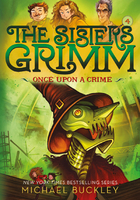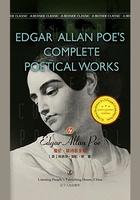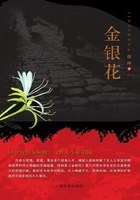Rugeley, a long, straggling, over-grown village which ranks, however, as a town, is kept very clean, and occupied by some persons extremely well-to-do in the world. It is about the size of Twickenham, but seems to have enlarged itself without any apparent design beyond the whim of the bricklayer and the varying price of building sites. Commercial travellers call it a good place for business, and declare that the accounts here are particularly safe. Lovers of bustle and crowded pathways might well find the quietude of Rugeley's cottages (with their large leaden lights and heavy shutters) not a little oppressive, but many visitors profess themselves charmed by its almost deserted streets. Housewives may be seen at the windows busily plying the needle behind rows of red geraniums, while their men-folk are away in the fields, or hard at work at Bladen's brass-foundry or Hatfield's manufactory.
The Town Hall occupies the centre of the Market Place; with its justice-room in the upper storey and, on the ground-floor, a literary institution next to a Savings Bank. Three or four London-looking shops are supported by plenty of countrified ones: butchers' with only a half-sheep as stock-in-trade; grocers' that sell bread; tailors' that keep stays and bonnets for sale.
Soon after you go out of the Railway Station, to cross the bridge by a flour mill, leaving The Yard and Rugeley's two churches behind, you reach a bend of the road where stands the shop that has most benefited by what are alleged to have been William Palmer's crimes-Mr Keeyes, the undertaker's. You are now in Market Street and approaching The Talbot Arms Hotel, generally still called The Crown, as before it assumed its present lordly name. You must be careful to distinguish it from The Talbot Inn, a much smaller place, which you have already passed. The Talbot Arms Hotel, where John Parsons Cook died, is a bold-faced house, not unlike a cotton mill from the outside, except that the windows are too large; and behind stretches an acre of back yard, surrounded by stables and coach-houses, which are well filled during the celebrated six-day Horse Fair held in June, and during the lesser fairs in April, October and December; but quite empty for the rest of the year. Here you may well catch sight of Mr Thomas Masters, a trim old gentleman in drab breeches and a cut-away coat, standing at the door of his hotel, propped on a knotted blackthorn stick. He has lived here for seventy-four years, and what he does not know about Rugeley and its people is hardly worth knowing. He rides a brown mare thirty years of age: 'The two of us make a good bit over a hundred together,' he will tell you.
Opposite, and set back a little from the road, behind a fore-lawn no bigger than a billiard table and a few evergreens enclosed by iron railings, stands the two-storied building with broad modern windows and a grey 'rough cast' fa?ade, which Dr Palmer occupied at the time of his arrest. Its neighbours are the humble Bell Inn on the left side, and the house of Mr John Bennett, shoemaker, on the right.
As you pass on, the shops become bigger and you even come across a book-seller's, Mr James's, with a fashionable mahogany front of plate-glass. The first turning to the left is an ugly lane, like a back street in Manchester, leading to the foundries. If you detain and question an inhabitant who has strayed into the street, he will tell you: 'Down there stands the old Post Office, where Palmer's friend, Mr Cheshire, got into trouble on the Doctor's account. We have a new Post Office now. And here's Mr Ben Thirlby's chemist shop-he worked for Dr Palmer-and yonder's the crockery shop where the Doctor used to deal, and there's George Myatt, the saddler's, where he had his harness repaired, and yonder's the tailor who made his suits.'
Everything in Rugeley is 'Dr Palmer' now; no other topic of conversation will serve. By the way, if we give him his courtesy tide of 'Doctor', which is a country custom when surgeons are concerned, we trust to be forgiven. The correct form of address is, of course, 'Mr Palmer', or William Palmer, Esq.
So on to the Bank-open from ten to three. Here Dr Palmer kept his flickering account, sometimes reduced to a few shillings, but then again swollen to thousands of pounds, only to shrink again from his losses on the race-course or the demands of greedy moneylenders. Now you are in Brook Street, the tree-lined scene of the annual Horse Fair: as broad as Smithfield, and as long as Regent Street, with plenty of room to inspect the horses, even should they stampede and charge down towards the Market Square like a cavalry regiment. The tall Maypole facing you could serve for a three-decker's mast. Boys sometimes swarm to the top-the young Palmer brothers were well known for their climbing feats-but they must surely hurt their legs on the iron hooping half-way up. The houses on both sides of Brook Street are large and commodious, and to the south-west, in the far background, the dark hills of Cannock Chase frame a pleasantly rural view of sheep, cows and immense wagons standing before the miller's door.
The miller's wife proves to be both comely and loquacious. She says: 'The landscape around us is most beautiful for miles: nothing else but noblemen's mansions and grounds. Do you think the aristocracy would come and settle here, so far from London, if it wasn't so sweet a spot? There's Shoughborough Park, the Marquess of Anglesey's place, within four miles-"Beau Desert" they call it-with the most lovely country you can imagine all along the Shoughborough road. In the other direction there's Lord Hatherton's park and timber, from which half the Royal Navy's dockyards are supplied. Oaks, Sir, with trunks as big around as cart wheels! Then there's my Lord Bagot's-the finest woods in Europe, Lord Bagot's got. And Earl Talbot's magnificent estate, which has named both our oldest inn and our principal hotel; and Weston Hall; and a hundred such. Bless you, Sir, compared with Rugeley, Nottinghamshire's a fool to it. Then there's Hagley Hall within a hop, skip, stride and jump of us-a short mile in fact-the finest shrubberies man ever saw, and the Honourable Mr Curzon is so kind as to allow us all to walk in them. It's only this plaguey Dr Palmer has set people against Rugeley; or else the whole world would be singing its praises.'
Retrace your steps at this point, and go back by way of Market Square to the other end of the town, where The Shoulder of Mutton Inn stands, an inn no larger than a cottage. Thomas Clewley, a fine-looking man with white hair and a cherry-red face which puts one in mind of trifle at some evening party, has been landlord here for more years, he says, then he would care to reckon. The inn has a tall roof from which dormer windows peep out across the street and over its entrance door hangs a crude painting of an immense shoulder of mutton, dwarfing the very respectably sized dried hams seen suspended from the kitchen hooks as one glances in through the passage window. The front parlour is lined with shelves containing what seem to be medicine bottles but are, in reality, traveller's samples of various wines, cordials and spirits. There is also on view the plaster image of a cow, such as grace dairymen's shops, or Hindoo temples, with the following Gothic inscription sunk in its base: 'No Milk like Bristol Milk!'
The tap-room is built out from the side of the cottage, with a slate roof of its own; the windows have heavy white sashes and small panes, twelve to the square yard; broadsheet ballads and hand-coloured prints of pugilists, murderers and race-horses paper the walls. On a shelf over the door stands a bottle containing a two-headed piglet preserved in spirits of wine; and scrawled across the face of a broken American hanging clock, above a coloured view of Sharon Church, Connecticut, you may read the jocose warning: 'No tick here!'
Mr Clewley is even less reluctant to discuss the 'Palmer affair' than old Littler, and equally positive about the Doctor's innocence. We have taken down the following from his lips, in shorthand:
THOMAS CLEWLEY
Palmer never had it in him to hurt a fly. The way they now talk of him in the London papers, and in towns where he was barely known, nigh makes me vomit! I reckon Littler has given you the particulars of his two false starts in life-at Liverpool and at Haywood-and how he was twice deceived by that foxy-maned harlot, Jane Widnall. But he never tells the whole story, on account of loyalty to his employer, Mrs Palmer, Senior.
The fact is, that when the poor lady had buried Mr Joseph Palmer, Senior, under a fine stone vault in the graveyard, she began to feel lonely and cold at nights. She would have married again, being a lively, handsome enough woman-as 'tis said coarsely in this town: 'Many's the good tune played on an old fiddle'-but that the deed drawn up by her eldest son Joseph forbade this. It's my suspicion that Mr Joseph, Junior, knew of a certain attachment she had formed on the very day of the funeral, and did not relish her beau as a step-father; the man, Moody by name, had once been a collier, and was now managing the pit at Brereton for him. That danger passed, since Moody soon after got knocked over by a railway train when his horse bolted across the lines; But I'm sure that, a few years later, if Mrs Palmer had been free to follow her inclinations, she would have married Cornelius Duffy, the linen-draper. I don't suppose Littler said much about that business, did he? Very well, Sir: I'll tell you the story just as it happened.
Duffy was a strapping fellow of forty or so, a linen-draper from Belfast. Though a man of good looks, we reckoned him a pretty dull chap in the house; he'd sit still and drink, spirits mainly, and read the newspapers from back to front and from side to side, spelling out every word with his lips. He came to lodge here twice: the first time, when young Mr William-now Dr Palmer-had just been dismissed from his apprenticeship at Messrs Evans & Sons of Liverpool, but not yet gone to Dr Tylecote's at Haywood; the second time, just before Mr William broke his apprenticeship with Dr Tylecote. I remember that, on the first occasion, Mr William paid the score Duffy had run up-it wasn't a large one, but Duffy had been lodging with me the better part of a month, and I had not yet seen the colour of his money. I wasn't sorry to see his back. I wondered why Mr William, who was only seventeen years old, and did not appear particularly friendly disposed towards Duffy, should do this for him. Mr William seemed to guess what was in my mind, for he said: 'Mr Duffy once rescued my father from an overturned coach on the Wednesbury road; and we Palmers like to show our gratitude.' Yet there was little warmth in Mr William's good-bye when Duffy went off, nor any gratitude in Duffy's. To tell the truth, it was a most disagreeable leave-taking.
Then Duffy comes here for the second time, drinking and reading the newspapers slowly through as before, and still seems to shun company. I try to get him to talk about the coach accident, but he shuts up like an oyster. In the evenings, when this parlour and the tap-room attract the most custom-and we draw it from miles around because of our home-brewed, which is unequalled in this county, though I have not travelled widely enough to make any grander claim-Duffy always slips out for a country walk, well muffled up, and don't come home until close on midnight.
Where he might go was none of my business, nor what he did when he went wherever he might go. On the day that Mr William's brothers George and Walter ride to Walsall for the fetching back of Mr William, Duffy goes off after supper for his usual stroll and this time don't return at all. He owes the house some three or four guineas, and when I question Mr William, who comes in for a drink, he seems surprised to hear that Duffy's been along again. He don't offer to pay the bill, though I mention it; and says no word either for Duffy or against Duffy. 'No doubt, he's been called away suddenly,' he says, 'and will soon be back. I understand that he has big interests in Liverpool.'
'Well, we still have his traps,' say I, 'including his sample box.'
'Then you may depend on it that he'll be back soon,' says Mr William.
I do no more in the matter, but wait; and time goes by, and no Duffy. Mr William, he says no word to me on the subject either, and I don't care to pump him. Presently, Duffy's boxes begin to smell very bad, and at the last my missus opens them. It was no murdered child, as we feared, but a quarter of Stilton cheese which had grown over-ripe, among a few dirty shirts and stockings, a rusty razor, two or three tradesmen's bills, old letters and suchlike. In the sample box we found some small pieces of linen, which I held as a pledge for the debt owed the house, though not worth above five shillings in all. I never set eyes on Duffy again, and he went away with no clothing but what he wore on his back.
I often puzzled on his sudden disappearance, and feared foul play-no, Sir, don't mistake my meaning! He went away the day before Mr William's return from Stafford, and Mr William knew nothing of the matter at all. But the contents of the sample box gave me a clue to what happened. In among the papers, not put by with care as though they were of particular value, but just lying anyhow, my missus found a number of love letters which made her cry out: 'Well, I never did!' and nearly split her sides with laughing.
The first of the letters in date ran as follows-for which you may take my word. It's a long time indeed since I read that letter, but like the celebrated Scottish historian Mr Macaulay, I am gifted-or, as you may say, cursed-with a memory like a photographic camera. What I have once read I can recall at will years later without effort. I have won many a wager thereby. This, as I say, was how the letter ran:
The Yard: Dec. 3rd, 1841.
I trust you will pardon the liberty I take in writing to you, and the still greater liberty of begging you the favour of calling here tomorrow at 3 o'clock, with the same cambric linen samples that you offered me yesterday. I know you will have some scruples as to my request, knowing that linen is unlikely to form the sole topic of our conversation, if you will be so kind as to accede to my request. You will find me alone at that hour. May I beg of you the kindness to forgive me this note in anticipation of the cause which I shall explain to you? What I have written is strictly confidential, and having been informed of your high and noble sense of honour and your absolute discretion, I need say no more. Although we exchanged only a formal few words, and those in the presence of my son George, yet believe me, I am one of your warmest, most sincere friends,
SARAH PALMER
-To Cornelius Duffy, Esq.,
The Shoulder of Mutton Inn.
It seems that Esquire Duffy took his box of samples around to The Yard next day at the hour named, and was satisfied with the promised explanation, for the second letter read even warmer and more sincere. Now, how did that one begin? Ah, I have it:
The Yard: Dec. 5th, 1841. My Dearest and Best Friend,
This morning I received a note from a lady neighbour, whom I am to go visiting, that she would prefer my taking tea with her on Monday instead of Tuesday. Now, can't you come Tuesday, at five o'clock? The boys won't be here, and I have given the servant leave to sit with her sick sister; but pray come by the back premises which are reached least obtrusively by the canal tow-path. You will come, won't you? I had anticipated so much delight in seeing you Monday. The postponement of one day seems very long to me, but I have to exercise discretion, because it would never do if unkind and malicious gossip about our love were to reach the ears of my son Joseph. All Monday I shall be thinking of the pleasure of seeing you, and I hope the time may pass quickly until our meeting. I am a lonely woman, and you have been very generous to me, more generous perhaps than you guess. Don't laugh at this note, for I have written it fresh from my heart. And pray, if not too late, accept Mr Sheritt's invitation which you declined before, to sing the tenor parts in the choir tomorrow. It will make you well thought of in the town, and also give me the opportunity to rest my eyes for an hour or more on your dear face; since my pew is so fortunately placed that I shall be able to do this without turning my head.
If you cannot come Tuesday, I will excuse myself to the lady on some pretext, for on no account on earth would I miss another meeting so happy as the last proved to be.
Most affectionately yours,
SARAH PALMER
The remainder of the letters were written in a more abandoned style, and always finished with loving kisses. The lovers made appointments to meet in many places, among them the graveyard and the coach-house, and were never, it seems, discovered until Mr William returned from Liverpool. I was in no way interested in their loves, nor did I censure them. It was but natural that a high-spirited woman like Mrs Palmer, forbidden to re-marry, though still young in heart and sturdy in body-having, moreover, reached an age when she need not fear the disgrace of bearing an illegitimate child-should solace herself with the embraces of a fine, upstanding, tenor-voiced Irishman, such as Cornelius Duffy, her junior by several years. And Duffy, to judge from the tradesmen's bills we found in his traps, and the poverty of his possessions, would have been glad to oblige so wealthy a protectress as Mrs Palmer, to the full extent of his powers.
At all events, I should have burned the letters, if I had had the sense, but my missus and her sister grabbed them and used them for the purposes of business. It's been said that I charged sixpence a head for the peep-show; but that's a lie. The way in which they came to be seen was that my missus got speaking of them, and one or two young chaps at the bar gammoned her to let them take a squint. 'Not until you've spent a shilling or two in grog, that you don't,' says my missus. They held her to that-I was out at the time, trying the ale at Bilston, for a man gets plaguey tired of his own brew, be it never so good-and she showed the letters. Then in comes another young chap, and another, and all take a look, those of them as can read; until at last I stagger home. Seeing what's afoot, I get properly vexed, and snatch the letters from the missus, but the harm's done; and though I hide them in the family Bible, which is the last place I'd expect her to look, and swear I've burned them in the grate, she don't believe me. A day or two later, I consult the Song of Solomon, where I'd put them and 'behold, they are vanished away, like unto a dream remembered on waking,' as Parson Inge would say sorrowfully when the choir-boys prigged his poultry or rabbits. I didn't know what my missus had done with the letters, and if I had asked, she'd only have said: 'What letters?-them as you burned in the grate, Mr C.?' There's no keeping women quiet in these matters, but I'm sorry that The Shoulder of Mutton earned a bad name in consequence of my carelessness. I've told you the whole tale to show you how it all came about.
The construction that I put on Mr William's case, since you ask me, is that he had a certain hold on his mother on account of being at first the only person who knew of her goings-on with Duffy. I believe that he was greatly distressed and shocked at the revelation. A lad can laugh at a matter of that sort if it happens in a stranger's house, and shrug shoulders if it happens at a neighbour's-but his own mother! I daresay you remember how Shakespeare's Prince Hamlet felt-not that I'm accusing old Mrs Palmer of being in any way concerned with her husband's death, though there are cruel tongues in this town have hinted even at that. Well, as I should guess-but, mind, it's no more than a guess!-Mr William reads his mother a lecture on her sins, and threatens to tell Mr Joseph about them if she doesn't send Duffy packing. She gives in at once. Mr William asks her for money to settle Duffy's score with me, and she gives it to him. Be sure, Duffy already had screwed a deal of money out of her, but Mr William surmises that he'll pretend to be waiting for a remittance from Belfast to settle the score-with the object of making more money yet. Which, I reckon, is exactly what Duffy has in mind; but when Mr William surprises him by paying the score, and then (as I suppose) threatens him with the thrashing of his life if he ever returns to Rugeley, Duffy takes the hint. Mr William was very handy with his dukes, as we say here.
Months later, Mrs Palmer writes to Duffy at Liverpool to say that the coast is clear, because her son William has gone to Haywood and nobody else is in the know. She invites him back to The Shoulder of Mutton. He comes for three weeks or so, and those letters prove that she continued on the same course as before, only with greater heat. It seems she had lost all her modesty, and there are phrases in the last letters which would cause a pedlar to drop his pack with surprise. Then came news that Mr William had broken his apprenticeship, and that George and Walter had ridden off to Walsall to fetch him back. That must have put Mrs Palmer in great fear. She sends Littler with a sealed letter to Mr Duffy, containing money and warning him (as I reckon) to clear out at once for both their sakes, and leave no vestige behind-not even sending his boxes by carrier to any place, where they might be traced. All I can say for sure, is: she tells Littler that the letter contains money for Mr Duffy, who has undertaken to send her some fine linen sheets from Belfast. I reckon she'll have sent a fifty-pound note to make it worth Duffy's while to humour her. My missus remembers Littler coming in with the letter, and Duffy going upstairs to fetch something from his box-maybe a watch and chain she's given him.
Well, Mr William returns and hears about Duffy from me; the news is a great surprise to him and though, as I say, pretending to be unconcerned, he seems to have used it to his good advantage. His mother could not now reproach him for having continued in his youthful attachment to Jane Widnall (whom he wished one day to marry), when she had been making a fool of herself with a chap like Duffy-a married man, by the bye-after her promise to William to have done with such frolics for ever.
I don't mean to say that Mr William would have threatened his mother: 'If you will not plead my case with Joseph, I will expose you to him!' That he would not have done, for he loved his mother, with all her faults. But he may well have said: 'Mother, I forgive you, as I trust that you will also forgive me.' At all events, she did plead with Mr Joseph and, I am told-but this is only hearsay-offered to tell his wealthy wife certain things very discreditable to him unless he forgave Mr William. For it was known that Mr Joseph still paid five shillings a week for a bastard daughter of his, whom he fathered on a nailer's daughter, by name Alice Plummery, over at Darlaston; and other tales are told of him, besides.
So Mr William is forgiven, and Mrs Palmer is forgiven, and Mr Joseph relents, which goes to show what a Christian spirit the knowledge that we are all sinners together in the eyes of God can awaken! However, Dr Tylecote would not take William back as his apprentice, because of the scandal that he caused in Haywood, and the deceptions he practised. This resolve greatly incommoded Mr William, who wished to renew his studies and make his way in life by industry. He was now so disgusted by the news of Jane's elopement with Peter Smirke that he swore never to trust a female again, and once cried out in my hearing that if they had gone away to any nearer place of refuge from his wrath than Botany Bay, he'd have followed them with a gelding-knife. And I think that this talk of a gelding-knife, and his offer to fight his brothers, and Duffy, shows well enough that Mr William was the violent sort when aroused, not the cold, crafty poisoner, which he is now falsely represented as being. To be sure, he poured acid on Smirke's clothes, but Smirke was such a little wisp of a man, and so unhealthy-looking, that William could hardly in honour have gone to fisticuffs with him.
Well, as the saying goes, there's always a way out while there's brass in the purse.
Dr Tylecote had no desire to hinder Mr William's advancement in life; but he made a great deal of trouble before finally consenting to get him admitted as a walking pupil into the Stafford Infirmary at the end of his term, and write him a certificate of good conduct. It may well be, I can't say, that money changed hands; for pretty soon Dr Tylecote was seen driving on his rounds in a very handsome new gig, which until then he could not afford. He's a good surgeon, is Dr Tylecote, and a kindly man into the bargain.
The problem of Mrs Palmer's loneliness was not yet resolved, of course, but resolved it was later. I daresay before this trial is over, something will be said about Mr Jeremiah Smith to the learned judges. Captain Hatton of the Stafford Constabulary came down here around Christmas, with his colleague, Mr Bergen, and asked a great many pointed questions on a great many subjects. In the end, they seized those courting letters written by Mrs Palmer to Duffy. My missus pretended at first she knew nothing of them, but they threatened to take away the licence if she would not give them up; so my sister-in-law brought them in-which she had kept for a lark, she said, without my missus's knowledge, when ordered to burn them in the bread-oven.
But why should the letters be taken off? The reason, Sir, is plain enough. If old Mrs Palmer were called by the Defence lawyers to give evidence on behalf of her son, which she'd do with a good heart, then the Prosecution would out with those letters and get leave from the Court to put them in as 'evidence of character'. She couldn't deny 'em as her own, and even if she told the truth about Dr Palmer, proving his alibi (as it's called) on the particular hour when he is supposed to have poisoned Cook with strychnine pills, who would believe her? Those letters are plain evidence of schemings, lyings, and adultery. No, Sir, old Mrs Palmer won't appear in the witness box at the Old Bailey, of that you may be sure! If she did, not only would she do her son no particle of good, but the secrets of her heart would be published by the newspapers throughout the length and breadth of England.















